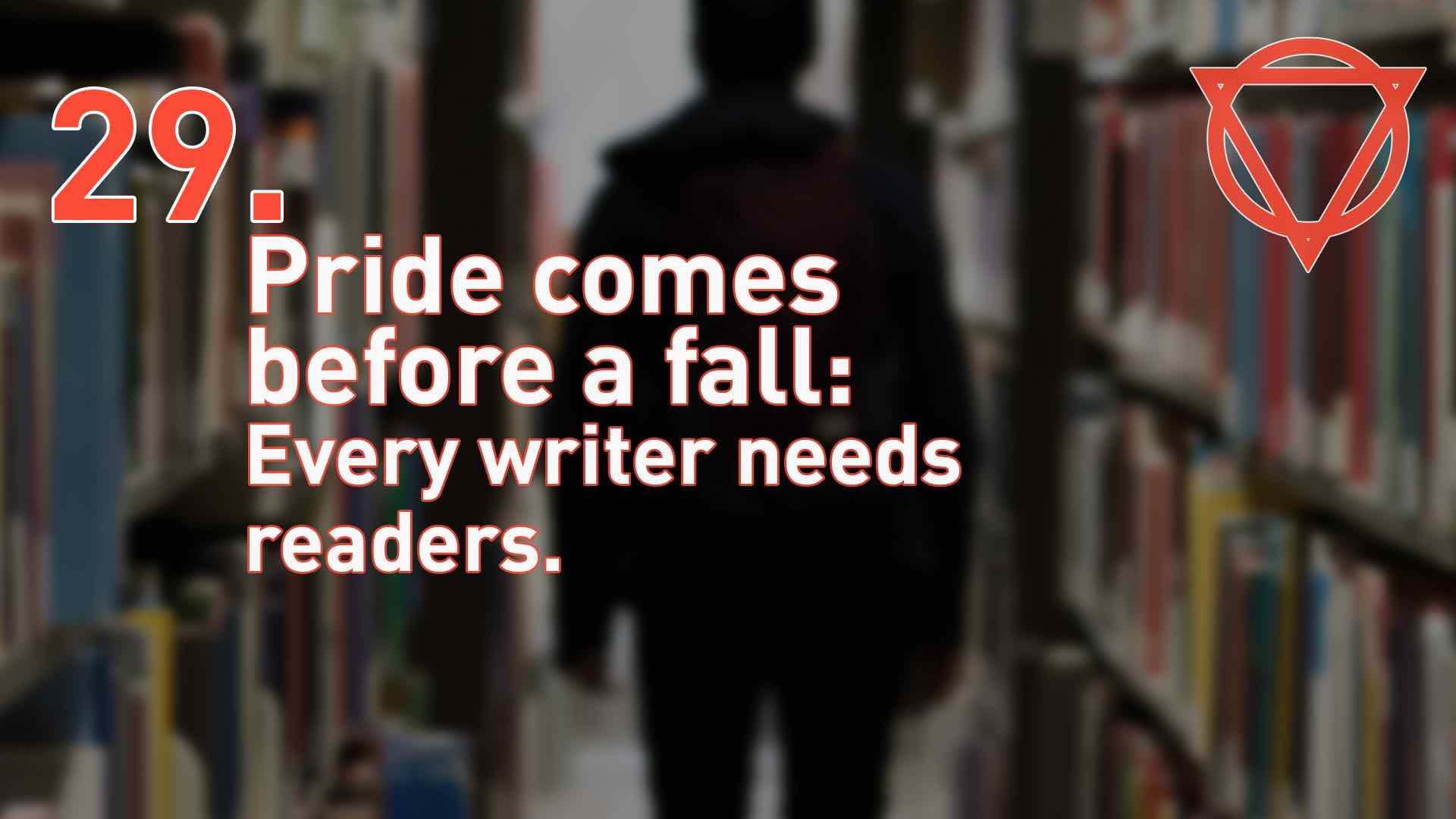Why do readers find so many problems in your screenwriting?
29. Pride comes before a fall: Every writer needs readers
If you want to see how easy it is for other people to spot all the problems in your work, just give feedback on someone else’s script. You will surprise yourself at the sheer number of times you stop reading to make a note. You might even feel like a terrible human being, pointing out flaw after flaw.
You’ll likely want to shout from the rooftops, “How can anyone be so blind to these mistakes? I mean, come on!”*
We’ve prepared some top advice just for you on how to improve your eye for editing screenplays.

How and why to become a script reader
Having experienced the process in the reader’s shoes, you will be much more equipped in knowing what to expect. You’re blind to your own mistakes as your brain fills in the gaps. Clever brain – but also naughty brain!
The best possible education you can get is to become a script reader. It is competitive work to get into because it’s a great job, especially for an aspiring writer. But do try and get some script reading experience. You’ll most likely start out having to do it for free, but the benefits you’ll get far outweigh the lack of money.
Becoming a script reader drills into you all the common mistakes novice writers make, so you end up avoiding them yourself.

You’ll notice:
- All those dreaded typos – they will bug you.
- Around 90% of scripts are written almost purely in dialogue. Snore!
- Some writers see formatting merely as a guideline and start improvising, which always looks shoddy.
- Monologues that add nothing whatsoever to the script: amateur authors love to use characters as inauthentic spokespeople for their half-baked political ideas (or, even worse, plot exposition).
- Half the time the protagonist is passive, totally dependent on other characters to drive the story, thereby destroying any narrative impetus.
- Scripts in Word – just go away!
The complete list is actually much longer. These flaws will annoy you. They will make scripts hard to read, and sometimes even give you a headache (seriously), but no screenplay is simply not worth reading for a new script reader. Every mistake you find improves your own writing, whether you realize it or not.

Learn from the gems, too
Among the heaps of bad scripts, you’ll find those diamonds in the rough that improve your writing massively. When you’ve been reading a ton of bad scripts and find a good one, you immediately notice exactly what makes it so good. Such realizations seep into your writing skillset.
The skills you can learn from script reading are useful in an infinite amount of ways when writing your own script. You will have seen the most common mistakes over and over again – you can then identify what irritates you as a reader and avoid it entirely.
Being at the other side of the creative table is vital for learning these lessons. Gut reactions to scripts are hugely important, and you’ll learn quickly how your first impression of a script colors your whole view of it.
* Note: watch the video called Nicolas Cage loses his sh*t for accurate portrayals of the emotions on this matter.

Homework
Listening to your script come alive is how you find those clunky bits of dialogue: what makes sense, continuity errors, and more.
The moment of truth
If you don’t already have people with whom you can organize a table read, find groups online. There are hundreds of communities out there that live for this stuff, and you may be surprised at the help you find.
Tit for tat
If you feel awkward meeting a group of strangers in an online group, try to get someone to give you notes on your script. If this person’s also a writer, offer to exchange notes. Judging another’s script can be one of the best ways to learn.
Find your Coen Brother
Look for online groups devoted to finding like-minded people in film. You never know – you may just find your writing partner out there!







